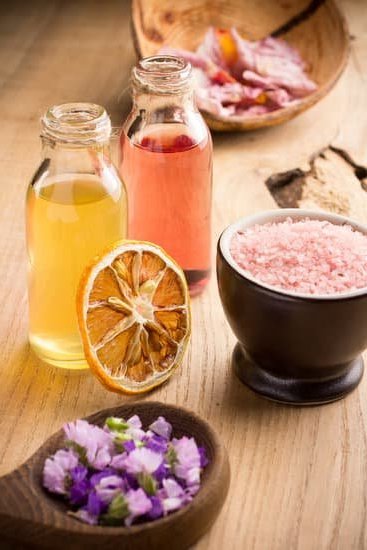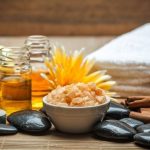Aromatherapy oils have gained popularity for their potential benefits in promoting overall well-being and skin health. However, many individuals may wonder, “are aromatherapy oils safe for skin?” In this article, we will delve into the world of aromatherapy oils, exploring their uses, benefits, potential risks, and safety considerations when using them on the skin.
Aromatherapy oils, also known as essential oils, are highly concentrated plant extracts that capture the essence and fragrance of various plants. These oils have been used for centuries in traditional medicine and skincare practices due to their therapeutic properties. When properly used, aromatherapy oils can provide a range of benefits for the skin, including hydration, anti-inflammatory effects, and improved complexion.
There are numerous types of aromatherapy oils available in the market, each with its unique properties and benefits for skin health. From lavender for calming effects to tea tree oil for acne-fighting properties, these oils offer a natural alternative to conventional skincare products. However, it is crucial to understand how to use these oils safely on the skin to avoid any potential risks or adverse reactions.
The Benefits of Aromatherapy Oils for Skin Health
Aromatherapy oils have been used for centuries to promote overall well-being and skin health. These natural plant extracts are known for their therapeutic properties and pleasant fragrances, making them popular ingredients in skincare products. When used correctly, aromatherapy oils can provide a range of benefits for the skin, such as hydration, soothing irritation, reducing inflammation, and promoting relaxation.
One of the main advantages of using aromatherapy oils for skin health is their ability to nourish and moisturize the skin. Essential oils like lavender, rosehip, and jojoba are rich in vitamins and antioxidants that help protect the skin from environmental damage and keep it hydrated. Additionally, certain essential oils have anti-inflammatory properties that can help calm redness and irritation, making them ideal for sensitive or acne-prone skin.
In addition to improving the appearance of the skin, aromatherapy oils can also have a positive impact on mental health. The inhalation of these aromatic oils through diffusion or topical application can promote relaxation, reduce stress levels, and enhance mood. This dual benefit of supporting both physical and emotional well-being makes aromatherapy oils a versatile and holistic approach to skincare.
| Benefit | Example Oils |
|---|---|
| Hydration | Lavender, Rosehip |
| Reducing Inflammation | Jojoba |
| Promoting Relaxation | Chamomile |
Different Types of Aromatherapy Oils and Their Uses
Aromatherapy oils, also known as essential oils, have gained popularity in the skincare industry for their numerous benefits. These oils are derived from plants and are often used for their therapeutic properties. However, not all aromatherapy oils are safe for direct use on the skin. It is essential to understand the different types of aromatherapy oils and their specific uses to ensure safe and effective application on the skin.
To help you navigate the world of aromatherapy oils, here are some common types and their uses:
- Lavender Oil: Known for its calming and soothing effects, lavender oil is often used to promote relaxation and relieve stress. It also has antibacterial properties that can help with acne-prone skin.
- Tea Tree Oil: Tea tree oil is popular for its antimicrobial properties, making it a great choice for treating acne and other skin infections.
- Rosehip Oil: Rich in antioxidants and vitamins A and C, rosehip oil is excellent for hydrating the skin, reducing fine lines and wrinkles, and promoting overall skin health.
While these are just a few examples of aromatherapy oils commonly used in skincare, it’s important to note that not all oils are suitable for direct application on the skin. Some oils may cause irritation or allergic reactions if used improperly.
When considering using aromatherapy oils on your skin, it’s crucial to do a patch test first to ensure that you don’t have any adverse reactions. Additionally, always dilute essential oils with a carrier oil before applying them to your skin to reduce the risk of irritation.
Remember that each person’s skin reacts differently to essential oils, so what works well for one person may not necessarily work well for another. With proper education and caution, aromatherapy oils can be a beneficial addition to your skincare routine.
Factors to Consider When Using Aromatherapy Oils on Skin
Aromatherapy oils have gained popularity for their potential benefits in promoting skin health and overall well-being. However, when it comes to using these oils on the skin, there are several factors to consider to ensure safety and efficacy. One of the key considerations is the quality of the aromatherapy oil being used. It is essential to choose high-quality, pure essential oils that are free from synthetic additives or contaminants.
Another important factor to consider is the individual’s skin type and any existing skin conditions. Different aromatherapy oils may react differently on various skin types, so it is crucial to do a patch test before applying any oil extensively. This can help identify any potential allergic reactions or sensitivities to particular oils. Additionally, individuals with sensitive skin or certain skin conditions should consult with a healthcare provider or dermatologist before incorporating aromatherapy oils into their skincare routine.
It is also essential to dilute aromatherapy oils properly before applying them to the skin. Undiluted essential oils can be irritating or even cause burns, especially for those with sensitive skin. Carrier oils such as coconut oil, jojoba oil, or almond oil can be used to dilute essential oils safely. Following recommended dilution guidelines can help prevent adverse reactions and ensure a positive experience when using aromatherapy oils on the skin.
| Factors to Consider | Importance |
|---|---|
| Quality of Aromatherapy Oil | Ensure purity and avoid contaminants |
| Skin Type and Conditions | Consider individual reactions and sensitivities |
| Dilution of Essential Oils | Prevent irritation by proper dilution with carrier oils |
Research and Studies on the Safety of Aromatherapy Oils for Skin
When it comes to using aromatherapy oils on the skin, there is a growing body of research and studies that aim to evaluate their safety and effectiveness. While many people tout the benefits of using essential oils for skincare, it is important to consider scientific evidence to understand their true impact. Studies have indicated that certain aromatherapy oils can provide various skin benefits, such as improving hydration, reducing inflammation, and promoting overall skin health.
Here are some key findings from recent research on the safety of aromatherapy oils for skin:
- A study published in the Journal of Cosmetic Dermatology found that essential oils like lavender and tea tree oil have antimicrobial properties that can help fight acne-causing bacteria on the skin.
- Research conducted by the International Journal of Molecular Sciences suggests that chamomile essential oil may have anti-inflammatory effects when applied topically, making it beneficial for soothing irritated or sensitive skin.
- Another study in Evidence-Based Complementary and Alternative Medicine demonstrated the potential anti-aging properties of rosehip oil, which is rich in antioxidants that can protect the skin from environmental damage.
Despite these positive outcomes, it is important to note that not all aromatherapy oils are safe for direct application on the skin. Some essential oils may cause allergic reactions or irritate sensitive skin.
It is crucial to perform a patch test before using any new oil on your skin and dilute them properly with a carrier oil to avoid adverse reactions. Following proper guidelines and consulting with a healthcare professional can help ensure a safe and effective experience when incorporating aromatherapy oils into your skincare routine.
Potential Risks and Side Effects of Using Aromatherapy Oils on Skin
Skin Irritation and Allergic Reactions
When using aromatherapy oils on the skin, one of the potential risks to be aware of is skin irritation or allergic reactions. Some individuals may be sensitive to certain oils, leading to redness, itching, or even a rash upon application.
It is crucial to perform a patch test before using any new aromatherapy oil on a larger area of the skin. This involves diluting the oil and applying a small amount to a small patch of skin to check for any adverse reactions.
Phototoxicity
Certain citrus essential oils like bergamot, lemon, and lime are known to cause phototoxic reactions when applied to the skin and exposed to sunlight. This can lead to severe sunburns or skin damage. To avoid this risk, it is recommended to refrain from using these oils on areas of the skin that will be exposed to direct sunlight for an extended period. Opt for non-phototoxic oils for daytime use instead.
Skin Sensitization
Another potential risk associated with using aromatherapy oils on the skin is skin sensitization. This occurs when repeated exposure to certain oils can sensitize the skin over time, leading to adverse reactions with subsequent use. To prevent this, it is advisable not to use the same essential oil on the skin daily and rotate between different oils instead. Additionally, always follow proper dilution guidelines and never apply undiluted essential oils directly onto the skin.
How to Safely Use Aromatherapy Oils for Skin Care
Aromatherapy oils have gained popularity for their therapeutic benefits, including promoting relaxation, reducing stress, and improving skin health. When used safely and appropriately, these essential oils can be a valuable addition to your skincare routine. However, it is essential to understand how to use aromatherapy oils safely on the skin to avoid any adverse reactions or irritations.
Dilution and Patch Testing
One of the crucial steps in using aromatherapy oils on the skin is dilution. Essential oils are highly concentrated substances that should never be applied directly onto the skin in their undiluted form. It is recommended to dilute essential oils with a carrier oil, such as jojoba oil or coconut oil, before applying them to the skin.
Additionally, performing a patch test is essential before applying any new essential oil to a larger area of your skin. This will help you determine if you have any sensitivity or allergic reactions to the specific oil.
Proper Application Techniques
When applying aromatherapy oils to the skin, it’s important to use proper techniques to ensure safety and effectiveness. Avoid applying essential oils near sensitive areas such as eyes, mucous membranes, or broken skin. Always follow recommended guidelines for the specific essential oil you are using regarding dilution ratios and application methods. It’s also vital to store essential oils properly in dark glass bottles away from direct sunlight and heat to maintain their potency.
Consultation With a Professional
If you’re unsure about how to safely use aromatherapy oils on your skin or have any underlying skin conditions, it’s best to consult with a professional aromatherapist or dermatologist. They can provide guidance on which essential oils may be beneficial for your skin type and offer recommendations for safe usage practices.
Remember that everyone’s skin reacts differently to various substances, so seeking expert advice can help prevent any potential risks or adverse effects from using aromatherapy oils on your skin.
Recommendations for Choosing High-Quality Aromatherapy Oils for Skin Use
In conclusion, when it comes to incorporating aromatherapy oils into your skincare routine, it is essential to prioritize quality and safety. Choosing high-quality aromatherapy oils can significantly impact the effectiveness and safety of these natural remedies for skin health.
It is crucial to research reputable brands and suppliers that offer pure, organic oils free from synthetic additives or contaminants. Ensuring the purity of the oils will help minimize the risk of adverse reactions and maximize the benefits for your skin.
Furthermore, when selecting aromatherapy oils for skincare purposes, consider factors such as your skin type, specific concerns, and desired effects. Different types of essential oils have varying properties and therapeutic benefits, so understanding their uses can help you tailor your skincare regimen to address your unique needs effectively. Consulting with a professional aromatherapist or skincare specialist can also provide valuable guidance on selecting the most suitable oils for your skin.
Overall, while aromatherapy oils can offer numerous benefits for skin health, it is important to use them safely and responsibly. Always perform a patch test before applying any new oil to your skin to check for potential allergic reactions or sensitivities.
Diluting essential oils with a carrier oil is also recommended to prevent irritation or sensitization. By following these guidelines and selecting high-quality oils from reputable sources, you can enjoy the many advantages that aromatherapy oils have to offer for radiant and healthy skin.
Frequently Asked Questions
Can I Use Aromatherapy Oils on My Skin?
Using aromatherapy oils on the skin can be possible, but it is essential to dilute them with a carrier oil to prevent irritation or adverse reactions. It’s also crucial to do a patch test before widespread use to check for sensitivity.
What Essential Oils Should Not Be Used on Skin?
There are some essential oils that should not be used directly on the skin due to their potency and potential for causing irritation. Examples include clove, cinnamon, oregano, and lemongrass oils. These oils are best used in diffusers or diluted in other products.
Which Essential Oils Are Safest on the Skin?
Some of the safest essential oils for use on the skin include lavender, chamomile, tea tree, and rosehip oils. These oils are generally well-tolerated by most individuals and have soothing properties that can benefit the skin. Still, it’s always advisable to do a patch test before full application to avoid any unexpected reactions.

Are you looking for a natural way to improve your health and wellbeing?
If so, aromatherapy may be the answer for you.





